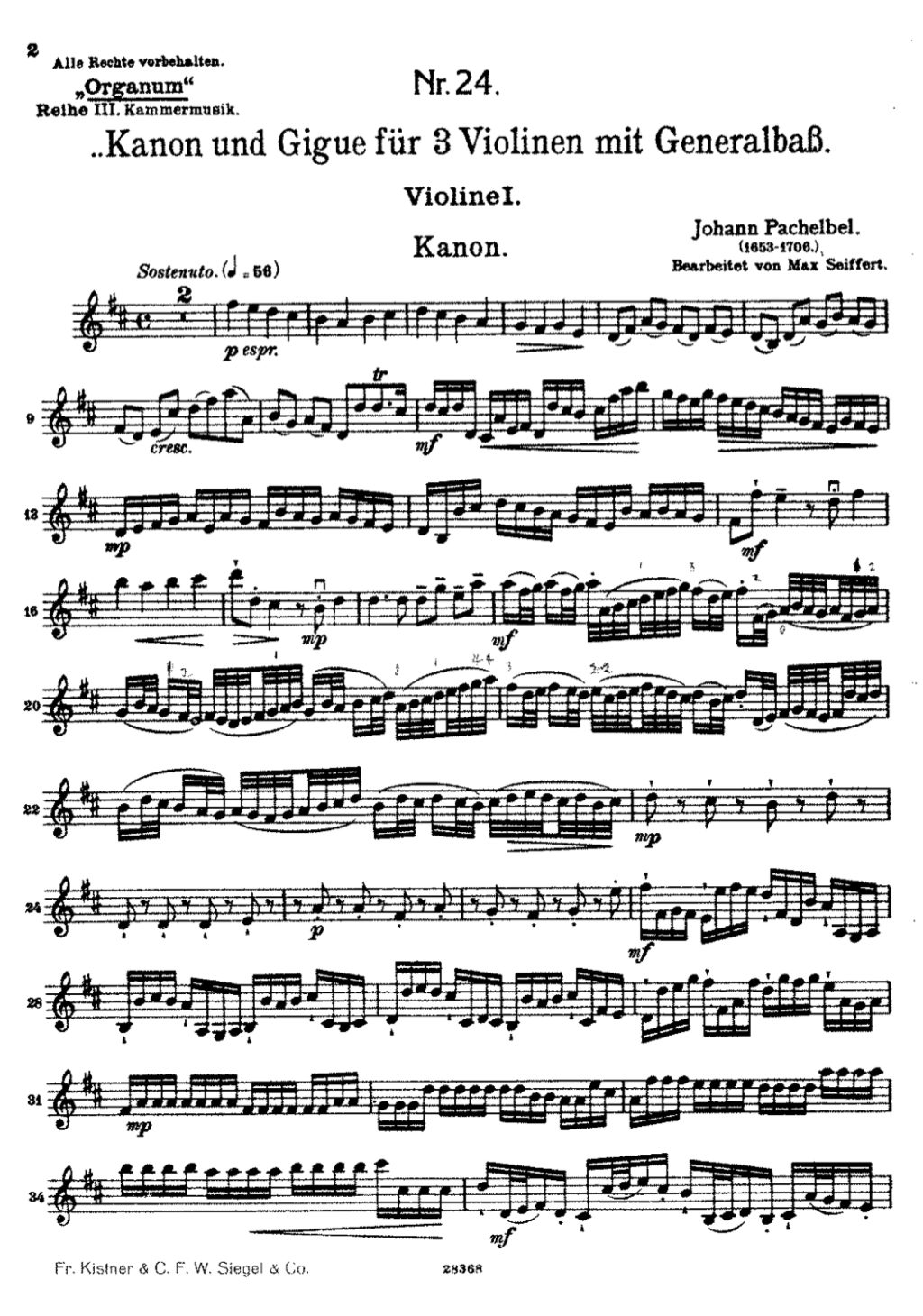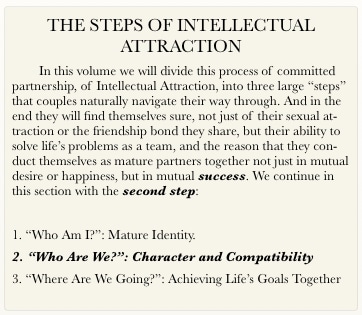
They have even gone so far as to work on their own character maturity and virtue, to ready themselves for a full attempt at seeing if they are able to form a long term, committed relationship.
Now, in Step 8, we must learn of the strengths and weaknesses in each other's character, and find a second kind of compatibility, not in personality styles, but in the character virtues composed from the common traits we share, and the relationship skills we must have, in order to be the most successful team of partners we can be.
This is the step where we also get such individualized preferences in another person that it could only fit in the step of courtship where we are in the higher brain, where we are most unique as individuals. We had no choice over the parents we were given, and so the randomness of that fact needs to be accounted for. We all experience "attachment" to our opposite sex parent, with all their virtues and vices, in a way which influences who we get intellectually attracted to in adult life. We also go through "identification" with the same-sex parent for a head start on our virtues and vices, absorbing them from that parent in childhood, and reworking them to suit our personal identity before adulthood, in the teen years and young adulthood. This influences what we "telegraph" to others as an intellectual attractor for THEM.
You can learn much more about this step in the whole series of deep lessons on it, at the main site articles of "Who We Are."
At this point in the "higher brain," the most unique, individualized part of the mind, we must bring in an element of such randomness, what makes us, us as individuals. It is the particular parents we had, and their influence on our identity and eventual choices in a mate. Attachment and Identification will influence what we learn from our parents, both in terms of our identity as adults, and in our preferences in choice of a mate.
In addition, there are both Four Commonalities of Commitment that we must learn, in which the more similarity we have, the more likely we will make lasting partners at reaching success together toward goals. These are Intelligence, Maturity, shared Beliefs about life, and shared Life's Goals. If you have more than two of these very in common with your partner, that goes a long way toward keeping you together.
There are also Four Skills of Commitment which "stack" upon each other, and without which we cannot last as lifelong partners. These are also called "the 4 C's": Curiosity, Communication, Compromise, and Collaboration, which cannot be built and used except in that order, and which parallels one's maturity of character. The highest skill to build in a committed relationship is Collaboration.

In Romantic Dynamics, we call a good match of these 16 virtues, "Two-factor Authentication," for the two factors of "common traits" and "partnership skills" (the "4 C's".) The traits need to be "in common," meaning that we have similar intelligence, similar maturity level, similar beliefs and preferences, and similar life's goals. The four Skills need to be as free of narcissism and as constructive and "win/win" as possible, too.
We solidify the uniqueness of our identities with the random inheritance of the traits of the particular same sex parent we happened to have (Identification), and the type of partner we learned to desire by way of character features in our opposite sex parent (Attachment), to reach ONE Master Virtue that we possess, and ONE Master Virtue that we seek in a partner, as the unique individual that we are.
Those who discover this one Virtue in themselves, and one in their partner, are especially lucky, blessed and persistent as far as romance goes.
THE EVENTS OF STEP EIGHT OF COURTSHIP:
Certain things that MUST occur for this eighth step to go well, include:
- The ability to recognize our own Vices, which we absorbed from our same-sex parent, originally. They are the extreme ends of the spectrum of Virtues that we may also have.
- The ability to recognize our own Virtues, some of which we originally absorbed from our same-sex parent. They may be accompanied by imbalance in the amount of them, and clumsiness in their use, which when we were younger, caused us trouble in the form of Vices of Deficit and Vices of Excess.
- The ability to recognize Vices in a potential partner, which originally came from our opposite-sex parent. We need to see them for what they are, and if they are not changable, we may need a different partner with more of the same Virtues and less of the Vices.
- The ability to recognize the Virtues in a potential partner, that many of them came from our opposite-sex parent in terms of why they attract us. Only we need to find and honor a partner that might in fact, have more Virtues of our opposite-sex parent than Vices.
- A survey of ourselves and our partner for the Four Commonalities: Intelligence, Maturity, Shared Beliefs and Preferences, and Shared Goals.
- A survey of ourselves and our partner for the Four Skills of Commitment: Curiosity, Communication, Compromise and Collaboration.
- An accounting of the 16 Cardinal Virtues that we hopefully share many of: Scholarliness, Philosophy, Honor, Aspiration, Influence, Elegance, Honesty, Inspiration, Authority, Justice, Service, Heroism, Competence, Equanimity, Resourcefulness and Resilience.
- The discovery of what the "Golden Virtue" is in our partner, and in us.
This technology need not only be exclusive to romance, but to any kind of collaborative effort between two people, even if the environment is a difficult one.
We will need to steady ourselves with this knowledge, for the reason that it can be unsettling to go this far into investing in a courtship, only to find that there is some "non-starter," some incompatibility between us that can actually bring down all that we have shared.
However, we need to remember that we are human and imperfect, that even if you discover some major incompatibility in your character as a couple, one can still decide that they simply want "to make the relationship work." Doing so, you are agreeing to a whole lot more work than would be needed with a more compatible person. However, if you are willing to do work, then you are just willing to do work, to find the highest happiness you can with what you have to work with.
TIPS FOR SPOTTING CHARACTER COMPATIBILITY:
Since the goal of the Intellectual Attraction Phase is the ability to be successful with getting to goals with a partner, and to raise the chances that both of you will reach your life's goals - to men, often called a "life's mission" and to women, often referred to as a "life's purpose" - these four traits, four skills and the sixteen virtues that they compose, make it very likely to be often or usually successful in getting to goals that you share.
A quick way to determine another person's character style, in a "quick snapshot" way, is to see how the four personalities have four Virtues of Partnership that each of them tend to be more facile with, than others.
- KINGS and QUEENS tend to take well to these four virtues: Scholarliness, Influence, Justice/Fairness, and Equanimity
- WARRIORS tend to be most naturally gifted at these four virtues: Honor, Honesty, Authority, and Competence
- MAGICIANS tend to most thrive at these four virtues: Aspiration, Inspiration, Heroism, and Resourcefulness
- LOVERS tend to be most fulfilled and natural at these four virtues: Philosophy, Elegance, Service, and Resilience
So a quick way to get the preview of the best skills and traits, the goodness and virtue for which a partner or yourself want to be known and appreciated for by you as a partner, simply have them take the Social Personality Test to see what temperament of personality they are. From there, they will be most likely to contain the four virtues that correspond, as their best features as a person.
And if only one of those also happens to be a virtue of their same-sex parent, that very well might be their "Golden Virtue." It combines the expectable science, with the randomness of the unique life's story they have had, including the parents that they did not choose for themselves.
When we have reached the middle of the commitment and partnering phase, or the Intellectual Attraction Phase of courtship, where success and harmony have maximized the value of being successful partners. We now know, "Who I Am" as an individual, as well as "Who We Are" as partners.
What must come next is the actual testing for what happens when we actually go forward to take charge of living our dreams and accomplishing our most dearly held, personal life's goals, in Step 9, "Where We Are Going."
< BACK TO INTELLECTUAL ATTRACTION GO ON TO STEP 9 >

